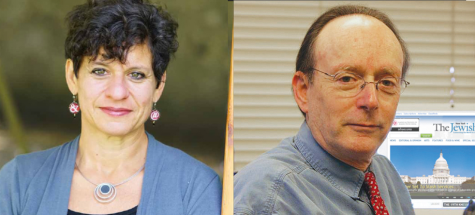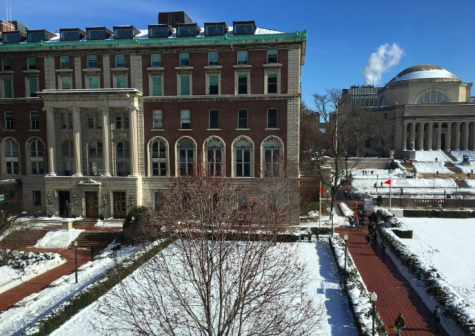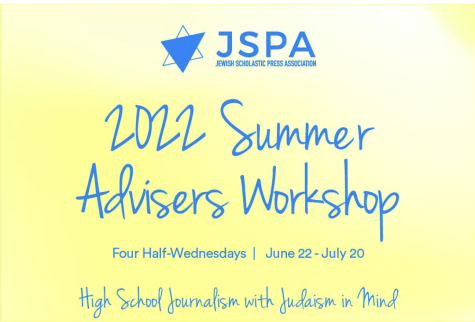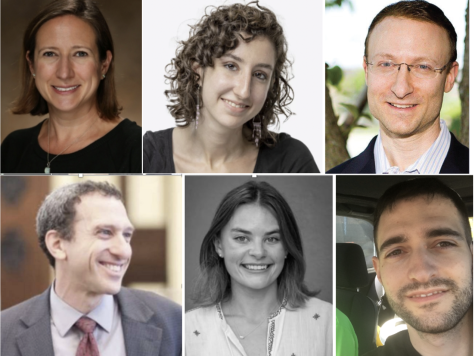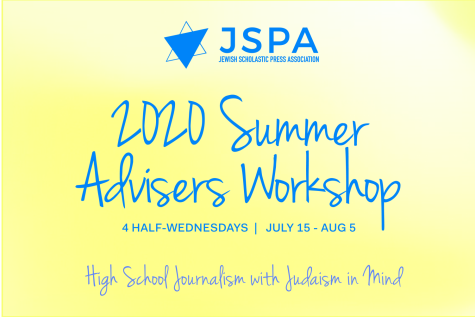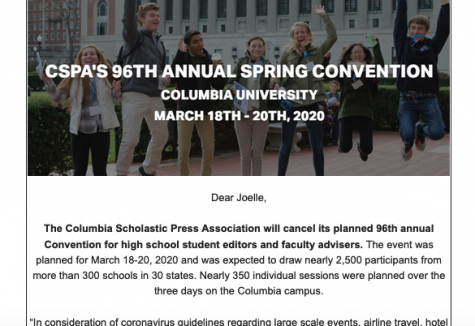Complete Schedule for JSPA’s Fifth Annual Convention and Shabbaton
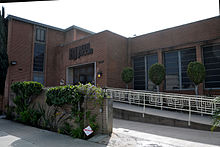
February 1, 2018
Click here to view the 2018 Conference Program in PDF format.
THURSDAY
All sessions at Beth Jacob Congregation
9030 W. Olympic Blvd., Beverly Hills, CA 90211
Shacharit 7:50 a.m., Schoenfeld Beit Midrash (downstairs)
9 – 9:30 – Registration, Beth Jacob Lobby
Session 1
9:30 – 10:15 Conference-wide Address
Journalism and Jewish Ethics
Rabbi Kalman Topp, Beth Jacob Congregation, Beverly Hills
Even though neither print, web nor cable news existed when it was written down, there’s nothing that our holy Torah did not envision and address, however indirectly. Learn what Jewish ethics have to say about the most modern of media, and how to evaluate journalism dilemmas through a lens of Jewish thought. Bayer Hall
Session 2
10:30 – 11: 15 Conference-wide Address
Does #metoo mean you too? Covering (or not covering) harassment in high school
Kathleen Neumeyer, Former Head of Upper School Publications, Harvard-Westlake School, Los Angeles
What’s the first thing you should do when someone brings a charge of sexual harassment or other misconduct to the attention of your school news media? What should and shouldn’t be reported? What legal issues are involved? And how can you decide whether staying away from the story is fair or is allowing misconduct to continue? Kathleen Neumeyer, former Head of Upper School publications at Harvard-Westlake school in Los Angeles, will offer a template for how to handle sexual harassment and other allegations, sharing examples from the past as well as guidelines being published by journalism think tanks today. Bayer Hall
Session 3
11:30 – 12:15 Choice of Two Workshops
Covering Israel and Jewish Issues in College News Media
Zev Hurwitz, UCLA
As Israel issues and anti-Semitism become ever more newsworthy on campus, college newspapers can help explain the issues, but student journalists covering these topics have been accused of bias and often face conflicting interests. Learn how to write the stories, how to avoid bias, and how to know when to recuse yourself from an assignment.
Principles of Design
Jessica Nassau, Charles E. Smith Jewish Day School, Rockville, Md.
No matter what section you’re designing, there are certain fundamentals of design that you need to follow. From fonts to headlines, dominance to harmony, this session will cover all the basics of page layout. Bayer Hall
12:15 – 2 p.m. Lunch on Pico
Session 4
2 – 2:45 Choice of Two Workshops
Writing About Jewish Values in 21st-Century Media
Professor Michael (Avi) Helfand, Pepperdine University School of Law
Dr. Michael (Avi) Helfand, an important legal thinker on issues of religious liberty and responsibility, will share some of his experiences writing for mainstream news media about questions of religious freedom and Jewish values. What are some of today’s challenges when bringing the complex lessons of Jewish identity and values to an increasingly polarized audience? And how can journalists and authors meet those challenges in the work that they do?
The Big Picture: Designing a Cover or Double-truck
Jessica Nassau, Charles E. Smith Jewish Day School, Rockville, Md.
There are some sections of your paper where you really want to make an impact. In this session, we’ll talk about how to come up with simple but clever visual metaphors that intrigue your readers – and pull them into your stories. Bayer Hall
Session 5
3 – 3:45 Choice of Two Workshops
How To Get Away With Journalism: Copyright In The News Media
David Nimmer, Irell and Manella LLP
From photographs to quotations to music, journalists use a wide variety of sources in their work, and some of these sources may be protected by copyright. A good journalist needs to know how to cite, quote or show copyrighted material without infringing. We’ll learn what exactly a copyright is and what it prohibits journalists from doing, using examples from real-life copyright cases. And we’ll explore the things journalists need to consider before using someone else’s work without permission,including the famous “fair use” defense.
Tales from Journalism’s Cutting Edge
Hannah Jannol, Hila Machmali, Gilad Spitzer, Shalhevet Boiling Point
From push notifications to basketball broadcasts, nothing puts you in your readers’ pockets like a news app and/or a frequently updated website. Editors of the national award-winning Boiling Point will describe how they manage staff roles, work flow, mistakes, tech updates, social media and more, along with the all-important interface between web publication and the print paper. Bayer Hall
Session 6
4 – 4:45 Choice of Two Workshops
Summer forever
Julie Gruenbaum Fax, journalist and memoirist
Summer goes by so quickly but often your experiences on vacation, at camp, or in other unique environments make create life-changing impressions that you want to share with others. How can you frame your experience so that it imparts meaning to others without sounding clichéd and boring? What awareness and techniques to do you need while you are going through the experience? Ms. Fax, who spent two decades as a journalist and now co-authors people’s memoirs, will provide answers and suggestions, and tell you how to get started even before summer begins.
Thinking and Planning: Panel on Layout and Design
Danielle Spitz, Josie Abugov, Alena Rubin and Nicole Kim, The Harvard-Westlake Chronicle
From maintaining a look to starting fresh, Chronicle Co-Editors-in-Chief Danielle Spitz and Josie Abugov, along with Managing Editor Alena Rubin and Presentations Editor Nicole Kim, will share how they design the overall look as well as individual pages of their school’s four-section paper. Alena and Nicole recently launched a new school features magazine called Panorama and will also share insights on how to design a new publication from scratch. Bayer Hall
4:45 – 5:10 Snack Break, Bayer Hall
5:10 MINCHA at Beth Jacob, Schoenfeld Beit Midrash
Session 7
5:30 – 6:15 SWAP SHOP
_________________________________________________________________
Friday
7:50 a.m., Shacharit a Beth Jacob, Schoenfeld Beit Midrash (downstairs)
Session 8
9 – 9:45 Choice of Two Workshops
Everyone’s a critic — or are they?
Rich Nordwind, Senior Calendar Editor, The Los Angeles Times
The Los Angeles Times has some of the finest arts and film critics in the nation, and their writing has the capacity to deepen our understanding of today’s world across many forms of expression. But with popular websites offering everyone a voice on social media, do readers still want critics’ expertise? Mr. Nordwind will lead a discussion about what role they should play, what readers would lose without them, and how students can learn to write about culture in a way that has value in the internet age.
Close to Home: Covering Your Own Community
Julie Gruenbaum Fax, journalist and memoirist
Writing about the people you know and love is one of the toughest challenges in all of journalism, and high school journalists do this every day. Shalhevet parent Julie Fax, who has covered Los Angeles’ Jewish community — including Shalhevet — for more than 15 years, will share war stories from the front and offer suggestions for how to write and think about the news that’s closest to home.
Session 9
10 – 10:45 Conference-wide address, Bayer Hall
Journalism Goes to the Movies
Shira Dicker, writer and blogger
Writer and cultural critic Shira Dicker pioneered this course at the School of the New York Times in New York and brings a snippet of it to JSPA, focusing on The Post, Spotlight and other films that share journalism’s inner workings with the masses, for better or for worse. Bayer Hall
Session 10
11 – 11:45 Choice of Two Workshops
Sports Reporting in the World of New Media
Eric Nusbaum, ViceSports.com
Like all news gathering, sports journalism is in flux, with live streaming services and social media challenging the role of sports writers whether in pro sports or at school. But the best sports coverage goes beyond game reports. Vice Sports editor Eric Nusbaum will describe how he finds non-team sports stories, and where he thinks online media is going, commercially, journalistically and stylistically, in the coming decade.
Saving the Yazidis, and Other Case Studies in Public Service Journalism
Eitan Arom, Jewish Journal of Los Angeles
Can journalism save lives? The story of the Yazidis, a tiny religious minority in Iraq, suggests that it can. Unknown in the West until they suffered shocking violence and destruction – partly on live TV – at the hands of ISIS in 2014., the small number of Yazidi survivors in the U.S. came to the attention of the Jewish community in part because of the efforts of Eitan Arom, who wrote about them, advocated for them, and visited them in their far-flung communities in the United States. Learn how to make the newspaper a place to improve the world, even at a moment when journalism seems besieged and less powerful than in the past.
11:45 – 1 LUNCH ON PICO
Session 11
1 – 1:45 – 2 Choice of Two Workshops
Freedom of the Press in Religious High Schools
Joseph M. Lipner, Irell & Manella LLP
A primer on privacy, libel, censorship, student press shields, Hazelwood, FOIA and FERPA, including California’s pioneering Leonard Law, which grants to both public and private high schools allthe freedoms afforded the professional press except one: work that violates the religious tenets of a religious high school. How to navigate through conflicting laws and court cases — and what to do when you’re not sure what applies.
News photography for print and online
Kathleen Neumeyer, Former Head of Upper School Publications, Harvard-Westlake School, Los Angeles
Why shouldn’t news photos be posed? What’s the difference between the best picture and one that’s best for the story? When is it okay to use cellphone cameras, and what has to be done to a photo to make it work both online and in print? And what makes a picture newsworthy on its own? From shooting to cropping and from breaking news to environmental portraits, learn how to capture, transfer and publish pictures that enhance storytelling and make your pages look great. Bayer Hall
Session 12
2 – 2:45 Conference-wide Address
Covering disaster
Jennifer Medina, National Correspondent, The New York Times
No one ever expects a disaster, but when one happens, your news source becomes more important than ever. Ms. Medina, who in the past year alone has covered the Las Vegas massacre, fires in Los Angeles and Ventura, mudslides in Montecito and the Perris child torture discovery, will share her experiences and tell how to get the basic facts, how to know which facts you need, how to scour for important details and how to approach victims. law enforcement, first responders and survivors, whether on site or far away. Bayer Hall
SHABBAT AT BETH JACOB
FRIDAY NIGHT
Mincha and Kabbalat Shabbat: 4:30 pm
Dinner in Eisenstadt Beit Midrash
Keynote Address: Ari Goldman
SATURDAY
Shacharit at 9 a.m., Shapell Sanctuary
Followed by lunch in Eisenstadt Beit Midrash
Moral dilemma discussion led by Mrs. Joelle Keene
Announcement of Awards
CONFERENCE ADJOURNS
